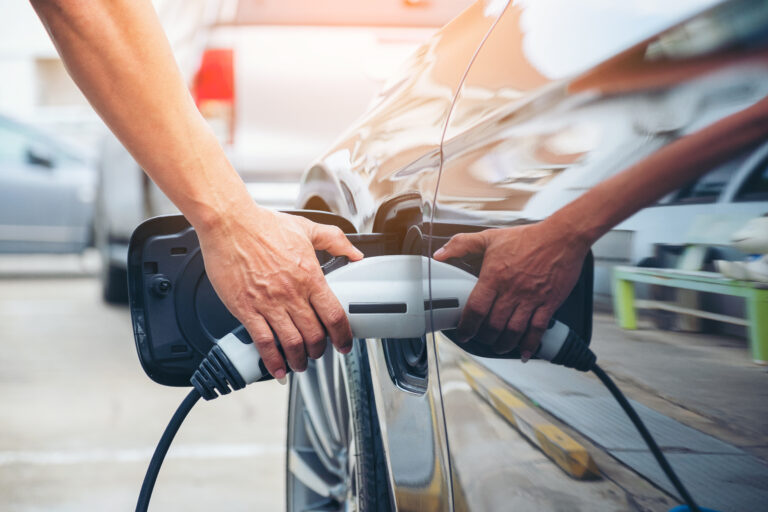Contact: Noah Barnes, Electrification Coalition
nbarnes@electrificationcoalition.org, (202) 461-2371
Washington, DC—Today, under Electrification Coalition (EC) leadership, a report was released by Atlas Public Policy that investigates giving consumers the freedom to buy electric vehicles (EVs) – an opportunity to accelerate the adoption of EVs by lifting the current prohibition that prevents manufacturers in many states from selling EVs directly to the consumer.
The analysis estimates that by enabling manufacturers to sell EVs directly to consumers, EV adoption may increase by as much as 13 percent between 2023 and 2030. This will help to accelerate the United States’ transition toward electric transportation and away from a reliance on oil that leaves us vulnerable to national and economic security risks.
Freedom to buy will allow consumers and businesses to buy directly from the manufacturer or continue to use their local dealerships. As with other sectors where consumers can buy and service a laptop, cell phone, and many other products through a variety of channels, freedom to buy will also allow consumers to purchase and service vehicles through both manufacturers and dealerships.
“The EV moment is here with new federal investment and state and city level leadership, but we need to give consumers the freedom to buy and service the EV of their choice,” said the EC’s VP of Policy Katherine Stainken. “This study shows the positive impact that the direct sales model can have on accelerating EV adoption.”
The EC also released polling results from a survey of voters statewide in North Carolina on the freedom to buy EVs. The results show that more than four-in-five North Carolina voters support the ability to purchase a vehicle straight from the manufacturer.
“Not all states allow for the freedom to buy – including North Carolina,” said Anne Blair, the EC’s Director of Policy and lead for North Carolina. “This impacts not just consumers, but also businesses and fleets with medium- and heavy-duty vehicles, particularly new entrants into the market who have the right to choose the business strategy that makes sense for them as they battle for American leadership in the global EV race.”
“The results of the poll are undeniable: Voters in North Carolina overwhelmingly support allowing consumers to purchase new vehicles from manufacturers directly,” said Blair. “If we are to succeed in our mission to electrify transportation, we need the right levers in place, and this is one of them.”
###
About the Electrification Coalition: The Electrification Coalition is a non-partisan, not-for-profit group committed to promoting policies and actions that facilitate the deployment of plug-in electric vehicles (EVs) on a mass scale in order to combat the economic, public health, and national security dangers caused by America’s dependence on oil. The EC works with a variety of stakeholders that represent the entire electrified transportation value chain, positioning the organization as a dedicated rallying point for an array of electrification allies. For more information, visit electrificationcoalition.org.

